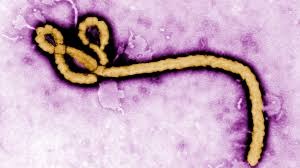NIGERIA: NCDC Warns Nigerians Against Non-Essential Travel To Uganda Amid Ebola Outbreak

By Onoja Baba, Nigeria
The Nigeria Centre for Disease Control and Prevention (NCDC), has issued a strong advisory urging Nigerians to avoid non-essential travel to Uganda and other countries experiencing Ebola Virus Disease (EVD) outbreaks.
This comes in response to a confirmed case of the virus in Uganda on January 30, 2025.
According to the advisory signed by the NCDC Director-General, Dr. Jide Idris, released on Monday, Nigeria has ramped up its preparedness measures, including heightened surveillance at points of entry, optimized diagnostic capacity for EVD testing, and strengthened coordination with relevant health authorities.
The NCDC has emphasized that there are no cases of Ebola virus disease in Nigeria.
However, in collaboration with relevant ministries, departments, agencies, and partners, the agency has updated its emergency contingency plan, increased surveillance at points of entry, and optimized diagnostic capacity for EVD testing in designated laboratories in cities with international airports.
The Ugandan Ministry of Health confirmed an Ebola case caused by the Sudan species in Wakiso, Mukono, and Mbale City in Mbale District.
As of now, only one case has been officially reported, with one confirmed death following a post-mortem examination.
Authorities are monitoring at least 44 contacts to prevent further spread. Ebola Virus Disease, formerly known as Ebola Hemorrhagic Fever, is a severe and often fatal illness caused by the Ebola virus, with a fatality rate ranging between 25% and 90%.
The virus is classified into five distinct species: Bundibugyo, Zaire, Reston, Tai Forest, and Sudan, the last of which is responsible for the current outbreak in Uganda.
EVD is transmitted to humans from infected animals, including fruit bats, chimpanzees, and monkeys.
Human-to-human transmission occurs through direct contact with infected bodily fluids such as blood, saliva, vomit, urine, feces, sweat, breast milk, and semen.
The virus can also spread through contaminated objects and unsafe burial practices.
Symptoms of Ebola infection typically appear between 2 to 21 days after exposure and include sudden high fever, severe headache and muscle pain, weakness and fatigue, vomiting and diarrhea, and jaundice.
In severe cases, patients may experience uncontrolled bleeding from orifices, organ failure, and death within 8 to 9 days of symptom onset.
The NCDC stated that based on a risk assessment following the recent Marburg outbreak in Rwanda, the likelihood of EVD occurring in Nigeria is moderate.
To mitigate potential outbreaks, the agency has activated Lassa Fever testing laboratories to scale up Ebola testing if needed. A moderate risk classification indicates that EVD, without mitigation, is likely to occur in Nigeria, with the potential for significant public health consequences.
So, the necessary precautions must be taken.
While vaccines exist for some strains of the Ebola virus, the approved vaccine for the Zaire species is not available in Nigeria and does not protect against the Sudan strain responsible for the Ugandan outbreak.
Nigerians returning from or transiting through affected countries in the past 21 days have been urged to monitor their health closely.
Those experiencing symptoms such as fever, muscle pain, sore throat, diarrhea, or unexplained bleeding should immediately contact the NCDC emergency line (6232) or their State Ministry of Health.
categories
recent posts

NIGERIA: UTME Begins April 24 As JAMB Adjusts Schedule

NIGERIAN: Police Extradits Murder Of First-Class Student

NIGERIA: Peter Obi Meets Imprisoned Teen Supporter, Quadri, Vows To Sponsor His Education


